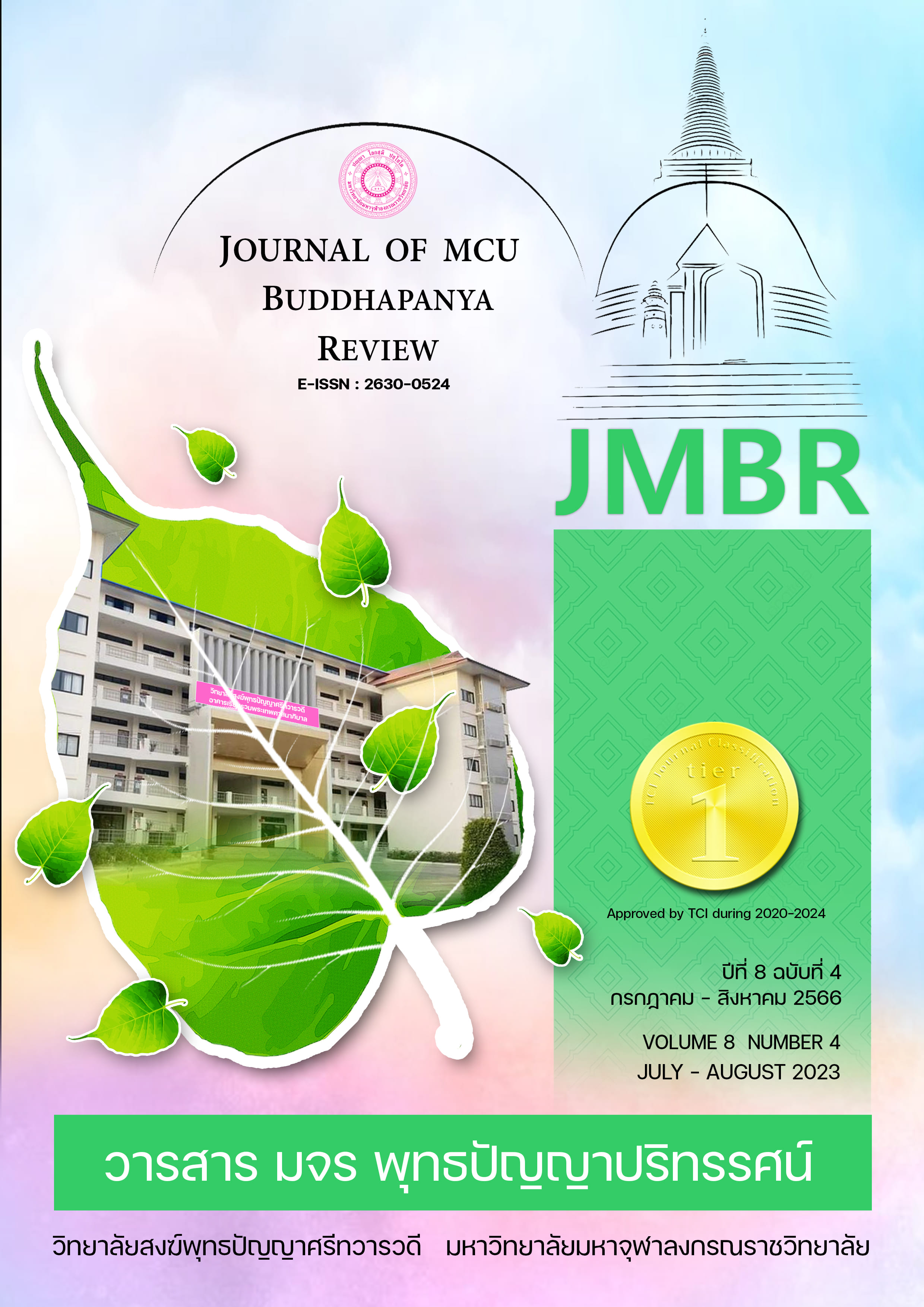การศึกษาแนวทางการพัฒนาบุคลากรเพื่อรองรับการท่องเที่ยวอย่างรับผิดชอบ กรณีศึกษาจังหวัดกรุงเทพมหานคร แม่ฮ่องสอน ภูเก็ต และสตูล
คำสำคัญ:
การท่องเที่ยวอย่างรับผิดชอบ, การพัฒนาบุคลากร, เครือข่ายการเรียนรู้.บทคัดย่อ
บทความวิจัยนี้มีวัตถุประสงค์เพื่อศึกษาแนวทางการพัฒนาบุคลากรเพื่อรองรับการท่องเที่ยวอย่างรับผิดชอบ และเพื่อสร้างเครือข่ายการเรียนรู้การจัดการท่องเที่ยวอย่างรับผิดชอบ ในกรุงเทพมหานคร จังหวัดแม่ฮ่องสอน ภูเก็ต และสตูล ด้วยการวิจัยเชิงคุณภาพ สัมภาษณ์เชิงลึก และประชุมกลุ่มร่วมกับผู้มีส่วนเกี่ยวข้องกับการท่องเที่ยวอย่างรับผิดชอบ ทั้งหน่วยงานภาครัฐ 46 คน ภาคเอกชน 19 คน และภาคองค์กรชุมชน 139 คน รวมจำนวนทั้งหมด 204 คน ทำการรวบรวมข้อมูลและวิเคราะห์ข้อมูลเชิงเนื้อหา
ผลการศึกษาพบว่า แนวทางการพัฒนาบุคลากรเพื่อรองรับการท่องเที่ยวอย่างรับผิดชอบ ด้วยการกำหนดเป้าหมาย และวัตถุประสงค์ของการพัฒนา ได้แก่ การสร้างความรู้และความเข้าใจ การสร้างทัศนคติและความตระหนัก การสร้างทักษะและประสบการณ์ในการจัดการท่องเที่ยวอย่างรับผิดชอบ และการสร้างพฤติกรรมความรับผิดชอบต่อการท่องเที่ยว การกำหนดกลุ่มเป้าหมาย การกำหนดรูปแบบการพัฒนาบุคลากรเพื่อรองรับการท่องเที่ยวอย่างรับผิดชอบ การดำเนินการตามขั้นตอนการเรียนรู้ 7 ขั้นตอน เพื่อให้เกิดพฤติกรรมความรับผิดชอบ ได้แก่ ความรับผิดชอบตนเอง ความรับผิดชอบต่อองค์กร และความรับผิดชอบต่อสังคม
เครือข่ายการเรียนรู้การจัดการท่องเที่ยวอย่างรับผิดชอบ เป็นรูปแบบเครือข่ายการเรียนรู้ที่ใช้ฐานเครือข่ายทางสังคมเดิม เพื่อการก่อตัวของเครือข่าย กำหนดประเด็นการท่องเที่ยวอย่างรับผิดชอบ สร้างกระบวนการแลกเปลี่ยนความรู้และประสบการณ์พัฒนาสู่การเป็นเครือข่ายการเรียนรู้ ด้วยการให้ชุมชนได้มีการเรียนรู้ร่วมกันเป็นสำคัญ เกิดวงจรการส่งต่อความรู้ เครือข่ายการเรียนรู้แบ่งออกเป็น 3 ลักษณะ ได้แก่ 1) เครือข่ายที่ชุมชนมีบทบาทนำ แหล่งท่องเที่ยวเป็นชุมชนชนบทและเป็นเครือข่ายเรียนรู้การท่องเที่ยวโดยชุมชน (แม่ฮ่องสอน) 2) เครือข่ายที่ภาคประชาสังคมมีบทบาทนำ แหล่งท่องเที่ยวเป็นชุมชนเมืองและเป็นเครือข่ายเรียนรู้ภาคประชาสังคม (กรุงเทพมหานครและภูเก็ต) และ 3) เครือข่ายที่ภาครัฐมีบทบาทนำ (สตูล) แหล่งท่องเที่ยวเป็นอุทยานธรณีโลกและเป็นเครือข่ายเรียนรู้ภาคประชาสังคมแบบเป็นทางการ
เอกสารอ้างอิง
Aimphan, D. (2002). Conference Report: Ecotourism. Bangkok: Tourism Authority of Thailand.
Ariyanon, K. (2009). A Participatory Action Research for Sustainable Tourism Development Through Environmental Education Process: A Case Study of the Sirindhron International Environmental Park. (Doctoral Dissertation). Mahidol University. Bangkok.
Chareonwongsak, K. (2000). Network Management: Strategies for the Success of Educational Reform. Bangkok: Success Media Co., Ltd.
Chuamuangphan, N. (2014). Sustainable Tourism Handout. Nakhon Pathom: Nakhon Pathom Rajabhat University.
Corporate Development Sustainability Institute. (2013). Social Responsibility for Sustainable Organization. (2nd ed). Bangkok: The Stock Exchange of Thailand.
Corporate Social Responsibility Institute. (2008). Business Compass for Society. (1st ed). Bangkok: Icon Printing LTD.,Part.
Edgar Dale. (2009) . Myths and Misconceptions. Retrieved April 25, 2019, from http://www.learningandteaching.info.
Keawsuriya R. (2006). Principle of Sustainable Tourism Development Handout. Bangkok: Tourism Authority of Thailand.
Kolthakun, S. Psychology Education. (9th ed) Bangkok: Chulalongkorn University Press.
Kotler, P., & Lee, N. (2005). Business Management. New Jersey: Prentice Hall.
Morachai, C. (2008). Community-based Management of Bansasom Community, Naphoklang sub-district Khoongchiam District in Ubon Ratchathani Province. (Research Repot). Ubon Ratchathani: Ubon Ratchathani Rajabhat University.
Pattarapothiwong, K., Punyawutpreeda, P. &Prapoj Supabhato, P. (2021). Health Care Tourism Promotion Through the Local Wisdom of Yai Cha Community Sampran District, Nakhonpathom Province. Journal of MCU Buddhapanya Review, 6(2), 150-152.
Phramaha Suthit Arphakaro (Arphakaro, S.), Walaisathian, P. (2004). Network Nature Knowledge and Management. Bangkok: Local Knowledge Management Institute.
Pongwat, A. (1996). Teacher Development Cooperation Network : National Mission. Bangkok: Office of the National Education Commission.
Rattanapong,. S., Srisuksai, N., Intagoon, K., Pradipatnaruemol, C. & Kodkong, N. (2021). Community Based Tourism Management in Wang Thong Subdistrict, Wang Thong District, Phitsanulok Province. Journal of MCU Buddhapanya Review, 6(1), 41.
Sertsri, S. (2015). A study of sastainable tourism management in Klongkone community mueng distric Samutsongkhram Province. (Master’s Thesis). Bangkok University. Bangkok.
Suansri, P. (2006). Community based Tourism Handbook. Bangkok: Responsible Ecological Social Tour Project.
Sukbanjong, C. (2016). Sustainable Tourism Development of Nhanmoddang Rafting, Pa Phayom District Phatthalung Province. (Master’s Thesis). Bangkok University. Bangkok.
Suparatpreecha, V. (2010). Social and cultural impact of tourism in Wat Ket community, Chiangmai Province. (Master’s Thesis). Chulalongkorn University. Bangkok.
Techaatik, S. et al. (1997). Strengthening Development of Community Organization. Bangkok: Chareonvitaya Printing LTD.,Part.
Thai Encyclopedia for Youth. (2020). Ecotourism. Retrieved April 25, 2019, from http://saranukromthai.or.th/ sub/book/book.php?book=27&chap= 3&page=t27-3-infodetail01.html
Tourism Authority of Thailand. (2019). Tourism Action Plan 2019. Retrieved July 24, 2019, from https://www.tourismthailand.org/fileadmin/ downloads/pdf.
Vanliphodom. S. (2007). Sustainable Tourism Community Project in Baan-Bu community and Related Area. Bangkok: Culture, Sports and Tourism Department.
Wongthip, P. (2012). Applied in Community Development: Integration Concepts. Bangkok: Local Knowledge Management Institute.
Yavaprabhas, S. (2005). Thai Government Personnel Administration New Trend and Challenge. (2nd ed). Bangkok: Dhurakij Pundit University.
ดาวน์โหลด
เผยแพร่แล้ว
รูปแบบการอ้างอิง
ฉบับ
ประเภทบทความ
สัญญาอนุญาต
ลิขสิทธิ์ (c) 2023 วารสาร มจร พุทธปัญญาปริทรรศน์

อนุญาตภายใต้เงื่อนไข Creative Commons Attribution-NonCommercial-NoDerivatives 4.0 International License.



